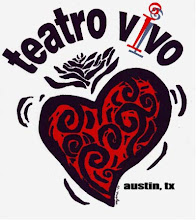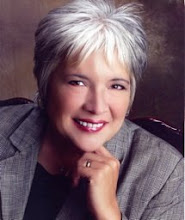To Bi-lingualize a script or not to bi-lingualize a script, THAT is the question.
I guess the bigger question is WHY to bilingualize a script. We are talking Spanish and English in Teatro Vivo's realm, but I know other groups that are using other languages besides Spanish. The United States has a multitude of languages spoken, and I think this is great. English only? Baloney.
But why use both languages? The main reason for using Spanish and English simultaneously is that we speak this way. A huge portion of the Latino community uses a mix of Spanish and English when they are speaking, and even some native English speakers sprinkle Spanish into their conversations as well. (I would bet that the Asian community has also begun to slip into the same pattern. It would make for an interesting investigation.)
I grew up speaking Spanish but learned English as a result of living next door to an African American family. They also picked up a few Spanish words in return. So my family was bilingual not only when speaking at home but also when speaking to the neighbors. Now when I speak "bilingually," it is due to a limited Spanish vocabulary. Back when I was growing up it was just the opposite. We substituted made-up words for English. This is where we get "carts" instead of letters. You know, "Hey mailman, did I get any carts today?" There is even at least one "Spanglish" dictionary available now. Adrian Villegas does a hilarious routine with several of these words in Six Mexicans Names Gonzales.
The second reason for bilingualizing a script is that it helps audience members connect with what they're seeing onstage. A regular comment we get after our shows is that the characters spoke the same way that the audience member speaks at home or with their friends. And second, our English speaking audiences also comment on how much they enjoyed the play and some even felt like they could speak Spanish by the end of the performance.
In conversations about bilingualism with Austin Chronicle writer Belinda Acosta, (Damas, Dramas, and Ana Ruiz), we have come to the agreement that there is a huge marketing opportunity that is just barely being scratched. MTV3 and Mund2 are making some headway. One needs to only look at what happened with the Latino Comedy Projects, promotional segments on MTV3. They were a huge hit and garnered an Emmy nomination.
Too many times mainstream entities go for the purely Spanish language in newpapers, magazines,TV shows or Movies. Now, I can understand why the printed media would avoid the use of the bilingual approach. It is really hard to read, and if you are not fluent in both, almost impossible. I have always believed that this is why my scripts never get produced by non-Latino theater companies. When they are read, the words don't flow, and if you don't speak Español, forget it. They only work when you have both the visual and emotional support provided by the actors on the stage.
But TV and movies are perfect for this approach. What we get is a sprinkling of Spanish to give it sabor but no real serious attempt is made to balance the languages and make the show more accessible to two sets of monolingual speakers at the same time. If there is a good example of a bilingual film or TV show, please let me know.
So all you filmmakers and TV producers, there is gold in them there hills. Our plays have already discovered it; now we need someone to open the mines.
Tuesday, June 2, 2009
Subscribe to:
Post Comments (Atom)








2 comments:
Hi there Rupert.
I think there's something very organic about playwriting, that the characters and narratives are informed by the playwright's experience. So it makes perfect sense that the way you talk is present in your plays. What's great is that this will resonate with many in our community who recognize their own experience in your work.
I myself grew up speaking English and learned Spanish in school. When my characters slip into Spanish it's either because it's what I do when I stub my toe, or get frustrated. At least that's the case when the characters seem to be closer to my age. I find that my older characters that speak Spanish tend to go for entire phrases/sentences in either Spanish or English.
2 months ago Octavio Solis' play "Lydia" premiered here in the Bay Area and there were many instances of Spanish and English, slipping into one language and then the other. I loved it. But I know some of the Marin Theatre patrons felt a little outside of the experience. I myself don't think that's necessarily a bad thing.
Sorry, just went on and on. Needless to say, great post and great conversation to have.
It's great that English speakers also feel they gain something from seeing a bilingual performance! But I'm not sure I understand what would constitute a "bilingual script". It seems like sometimes people just substitute terms of endearment and obvious phrases like "vamonos" for their English counterparts. Is that considered a bilingual script? Because if so, even old western movies could be considered bilingual, and I'm not sure that's what you're talking about here.
Post a Comment